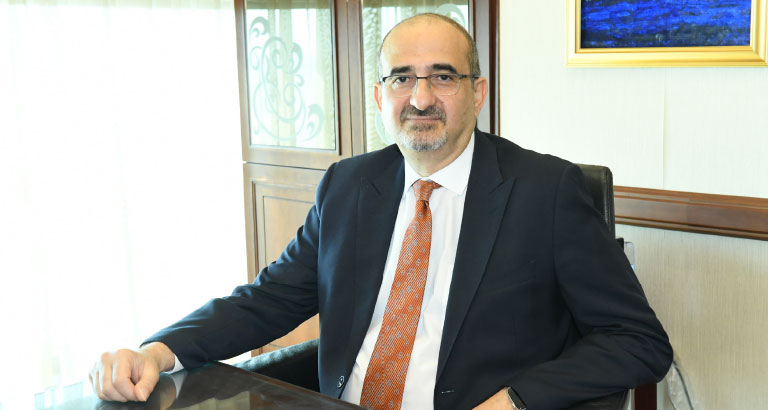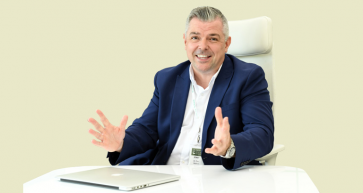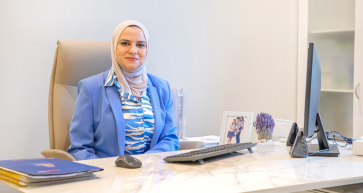
One of the Kingdom’s leading educational institutions, Applied Science University (ASU), is under new stewardship with Ammar Kaka taking on the role of president. Kristian Harrison spoke with him about his career, his goals and aspirations for ASU.
Can you give us a summary of your career in education so far?
My academic career started at the University of Liverpool, where I was a faculty member in the School of Architecture & Building Engineering for nine years. I then moved to Herriot-Watt University in Edinburgh, Scotland when I became the Professor of Construction Economics and Management at the age of 35.
Whilst there, I assumed various leadership positions in Learning and Teaching, and in research and when the university wanted to expand its transnational education reach in the Middle East, I was part of the feasibility study that resulted in the establishment of the university campus in Dubai. Soon after its establishment, I moved to the UAE and became the University President there, and remained in this position for 12 years. During this period, the campus grew to become the largest international branch campus in the UAE and the only university to be awarded the 5 stars rating for the 3rd consecutive time. Three months ago, I moved to Bahrain to assume the role of the President of ASU.
How did you feel that ASU was a fit for you personally?
I’m a strong believer and advocate of students skills and character development. With the rapid and transformational change in technology, knowledge has become very accessible. Students now a days join higher education not only for the purpose of acquiring knowledge, but more importantly for the skills they will develop to enable them to apply the knowledge in their workplace. Future ready graduates will also need to have the appropriate mindset to meet global challenges and to grab new opportunities.
The Applied Science University as part of its mission focuses on applied education and applied research and as such is I was delighted to be part of this mission. Furthermore, as I originally came from this part of the world, it was a personal honour for me to be given the opportunity to contribute and lead one of the top 20 ranked universities the Arab region.
What are your most immediate challenges to address during your presidency of ASU? What are your longer-term goals?
Our immediate priority is to grow the university and its impact on society. We plan to expand our portfolio of research and education programmes into areas of national and regional priorities. Our university campus has the capacity to grow our student population both at undergraduate and postgraduate levels.
We are also embarking on a portfolio modernisation exercise, with the aim of enhancing student experience and graduate attributes.
In the long term, we want to become a leading university not only within the Bahraini context but regionally and internationally. We aim to build and improve on our recent and very impressive successes in university rankings and international accreditations which will help us to attract more international students. Currently ASU is the top ranked university in the Kingdom of Bahrain (according to the global QS ranking system) and the only university to have obtained the UK QAA accreditation.
What are some of ASU’s most popular courses?
We are the only university in Bahrain that delivers bachelor degrees in Political Sciences, whilst our Law programmes have a proud history of graduates who have successfully progressed to secure influential jobs. Our Engineering College host and award degrees from London South Bank University, a partnership that we have recently expanded to include programmes in our Law and Administrative Science Colleges.
Next academic year we plan to admit students for the first time to a Masters in Political Science and a Bachelor in Mechanical Engineering. I am also delighted to announce that we are currently developing three PhD programmes, which will be an important milestone in our academic development.
ASU has a proud history of partnerships with other universities, particularly in the UK. Do you plan to build further relationships in the future?
Our partnership with London South Bank University is going from strength to strength. We are growing the scope of our partnership to include research and students mobility.
We work closely with Advance HE in the UK and we are very proud of the fact that the majority of our academic staff have achieved fellowship recognition. We are currently seeking accreditation to become a regional Advanced HE centre which will enable us to offer academic training not only to our university staff but beyond.
We recently signed a memorandum of understanding with the University for Peace and are exploring other partnerships with other prestigious universities.
Anything more to add?
I strongly believe in widening access to education, and I am proud of the fact that 49% of ASU’s current student population are females. We are particularly keen to attract more female students to our Engineering programmes.
Our hardship fund together with the range of scholarships that we offer are aimed at supporting and rewarding students with financial difficulty.



